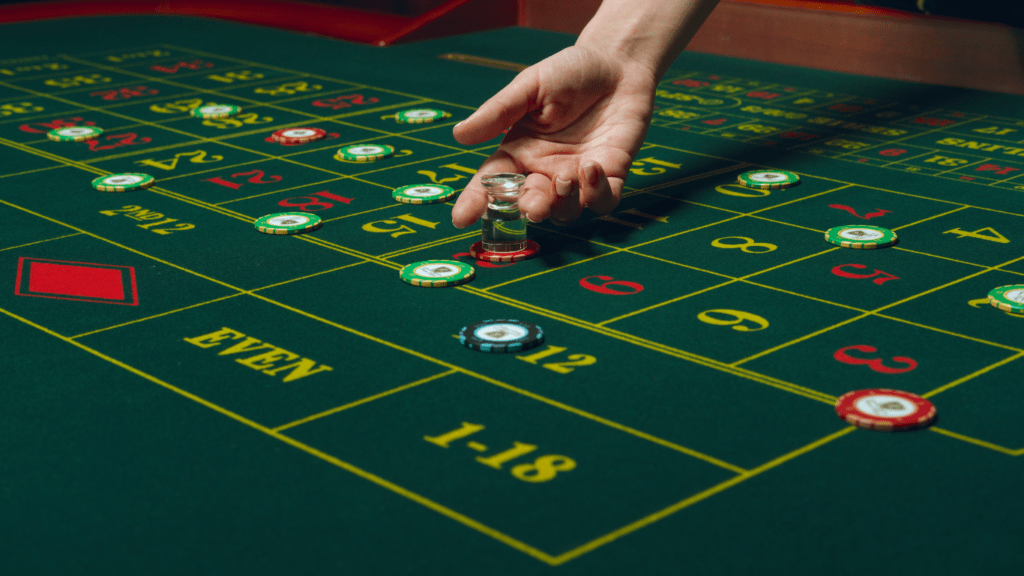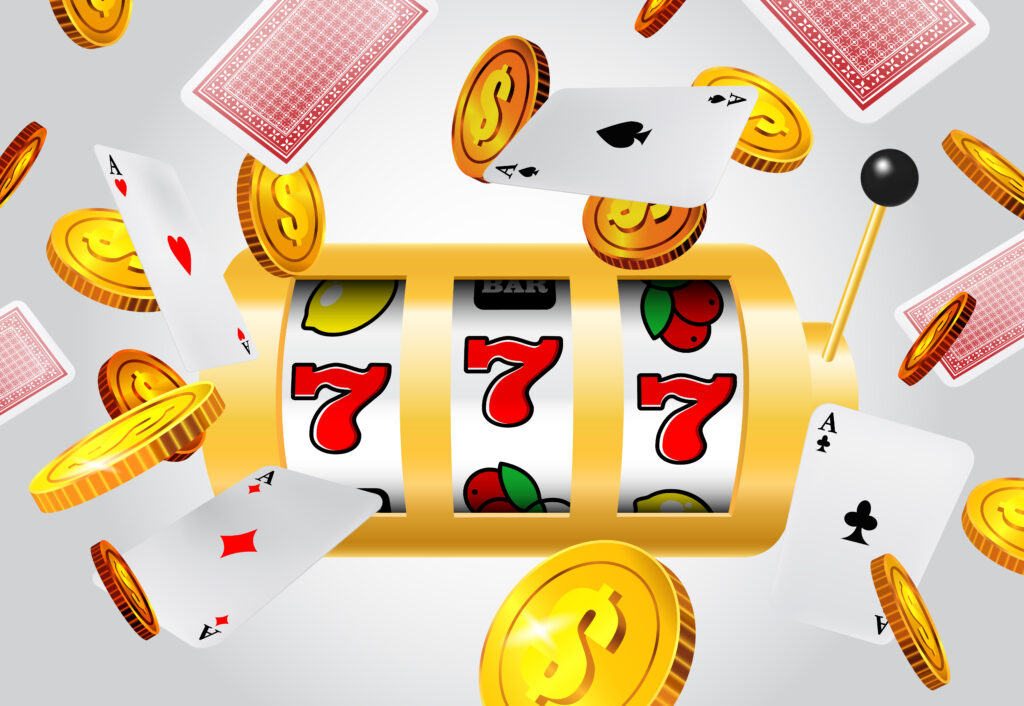Understanding Impulsivity and Gambling
Impulsivity and gambling share a strong, interwoven relationship. Recognizing and defining these terms helps clarify their connection.
Defining Impulsivity
Impulsivity refers to actions taken without forethought or consideration of the consequences. These behaviors, such as sudden decisions and reckless actions, can result in negative outcomes.
Seven studies, including one from the Journal of Gambling Studies, identify high impulsivity levels as contributing to problematic gambling.
Impulsivity includes traits like a lack of reflection, rapid decision-making, and a tendency to prioritize immediate rewards over long-term benefits.
Defining Gambling Behavior
Gambling behavior encompasses activities involving betting or wagering, often with the aim of winning money or other material goods.
Common gambling forms include:
- Lotteries
- Casinos
- Sports betting
- Online gaming
The International Journal of Mental Health and Addiction states that gambling behaviors can become addictive, driven by psychological triggers like the excitement of risk-taking and the potential for high rewards.
Key elements include unpredictability, suspense, and the perception of skill involvement, which appeal to individuals with impulsive tendencies.
Understanding the traits of impulsivity and the nature of gambling is crucial in recognizing why some individuals are more vulnerable to gambling addiction.
Psychological Theories Linking Impulsivity to Gambling
Psychological research explores various theories connecting impulsivity with gambling tendencies. This section examines these perspectives, focusing on dopamine’s role and cognitive behavioral views.
The Role of Dopamine
Dopamine, a neurotransmitter, plays a significant role in reward and pleasure systems. High levels of dopamine drive impulsive behavior.
In gamblers, dopamine release creates excitement and a sense of reward. Studies show that gambling activities increase dopamine release, reinforcing risky behavior.
Elevated dopamine can thus make it hard for individuals to resist gambling.
Cognitive Behavioral Perspectives
Cognitive behavioral theories highlight distorted thinking patterns and maladaptive behaviors in gamblers.
Impulsive individuals may overestimate their control over gambling outcomes.
This cognitive distortion leads them to continue gambling despite losses, chasing the perceived possibility of winning.
Cognitive behavioral therapy (CBT) aims to correct these thought patterns, helping individuals recognize and change irrational beliefs associated with gambling.
Impact of Impulsivity on Gambling Habits
Impulsivity strongly influences gambling habits, shaping how individuals engage with gambling activities.
This section examines how impulsivity drives immediate gratification and decision-making, as well as risk-taking behaviors in gamblers.
Immediate Gratification and Decision Making
Impulsive individuals often seek immediate gratification, leading to poor decision-making. For these individuals, the instant rewards offered by gambling are extremely alluring.
The anticipation of a quick win overshadows the potential long-term losses. Studies show that impulsive gamblers tend to prefer higher-risk bets with immediate outcomes over safer options with delayed rewards.
This preference exacerbates their gambling issues.
Risk-Taking Behaviors in Gamblers

Impulsivity also correlates with increased risk-taking behaviors. Impulsive gamblers demonstrate a greater willingness to take significant risks without thoroughly considering the possible negative outcomes.
They frequently jump into high-stakes games, driven by the thrill of potential substantial rewards.
Research indicates that such individuals often underestimate the risks involved, which leads to repeated gambling despite losses.
This pattern not only fosters addiction but also results in significant financial and personal consequences.
Case Studies and Research Outcomes
The interaction between impulsivity and gambling has been the subject of extensive research. Case studies and scientific investigations provide critical insights into how these factors intertwine.
Analysis of Recent Studies
Recent studies highlight the significant impact of impulsivity on gambling behavior.
According to a 2022 study published in the Journal of Gambling Studies, individuals with high impulsivity scores are more likely to engage in pathological gambling.
The researchers assessed over 1,200 participants, using the Barratt Impulsiveness Scale to quantify impulsivity and found a strong correlation between high impulsivity and increased gambling frequency.
Another critical study from Psychological Medicine in 2021 examined the neural underpinnings of impulsivity in gamblers.
The research employed functional MRI scans to observe brain activity in 300 participants.
It revealed that those exhibiting impulsive traits showed heightened activity in the ventral striatum and prefrontal cortex, regions associated with decision-making and reward processing.
These findings suggest that neurological factors significantly contribute to the impulsivity-gambling link.
Personal Accounts and Patterns
Personal accounts provide a human perspective on the relationship between impulsivity and gambling.
Many individuals confess that their impulsive tendencies drive them toward gambling activities.
For instance, John D., a participant in a 2020 qualitative study by Addiction Journal, shared that his spur-of-the-moment decisions led to substantial financial losses.
He reported an inability to resist the immediate thrill of gambling, even when aware of potential negative outcomes.
Patterns observed in these personal accounts often reflect the broader findings in structured studies.
Impulsive gamblers frequently exhibit behaviors like chasing losses, betting more than intended, and experiencing difficulty adhering to self-imposed limits.
These patterns are consistent across diverse demographics, reinforcing the understanding that impulsivity plays a critical role in gambling behaviors.
Both empirical studies and personal narratives underscore the importance of addressing impulsivity to mitigate gambling-related issues.
Strategies to Mitigate Impulsive Gambling
Managing impulsive gambling focuses on behavioral interventions and educational measures aimed at reducing risky decision-making.
Therapeutic Interventions
Therapeutic interventions often involve cognitive-behavioral techniques. Cognitive-Behavioral Therapy (CBT) helps individuals recognize and change harmful thought patterns.
Therapists guide patients in identifying triggers and developing coping strategies.
Mindfulness-Based Stress Reduction (MBSR) proves effective in managing impulsivity. Practitioners teach mindfulness to increase awareness and control over impulsive actions.
Support groups provide a community of individuals facing similar challenges. Groups like Gamblers Anonymous offer peer support, making individuals feel less isolated.
Creating Awareness and Preventative Measures
- Educational campaigns raise awareness about the risks of impulsive gambling.
These campaigns focus on the financial and psychological impacts to build a cautious mindset.
- Schools and community centers should host workshops.
These sessions target young adults, teaching them about responsible gambling and the dangers of impulsivity.
- Self-exclusion programs allow gamblers to voluntarily ban themselves from casinos.
This preventive measure helps limit access to gambling opportunities.
- Implementing these strategies can curb the detrimental effects of impulsive gambling by promoting responsible behavior and self-awareness.




